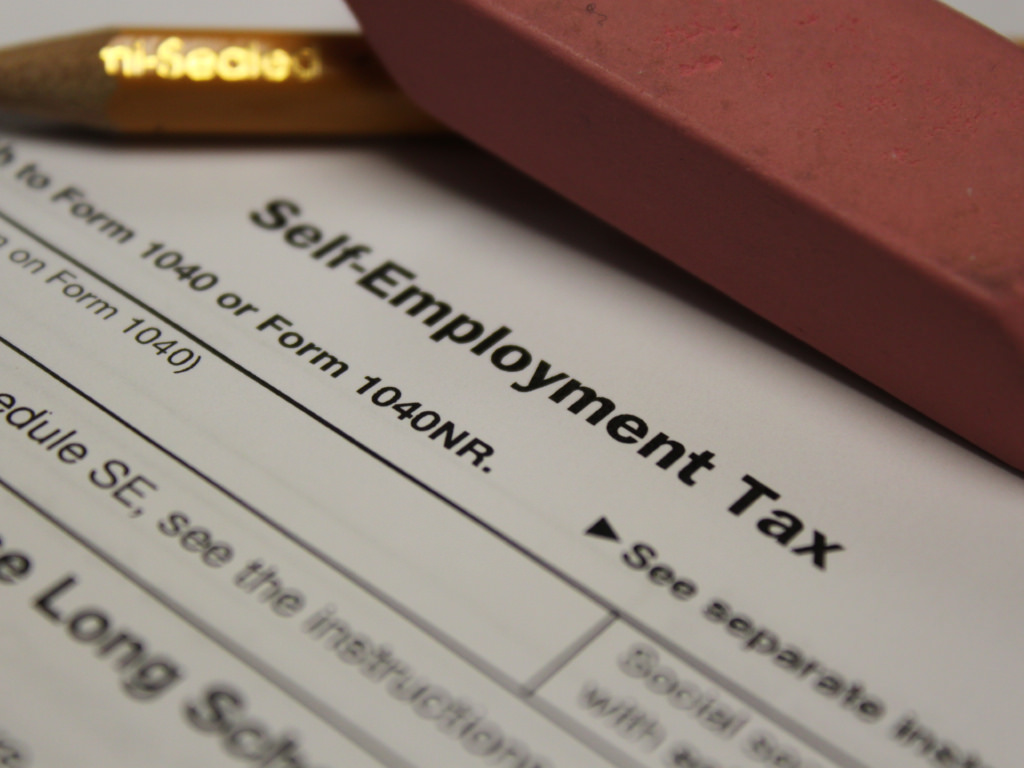
For most people, going self-employed can seem like the dream. You get to work when you want, where you want, setting your own rules and your own goals. The government encourages people going self-employed and there are many perks.
Of course, going self-employed isn’t easy – otherwise we’d all be doing it. All the horrible bits of admin that an employer usually sorts out for you are thrust upon your shoulders, including tax, pensions and insurance. And if you’re hiring staff, you then have the added work of managing their tax, pensions and insurance.
Therefore, before you take the plunge and make the decision to become your own boss, it’s important to know all the ins and outs. Reading this you may decide that being self-employed is in fact your worst nightmare – the equivalent of jumping into a seastorm without a life-jacket. Or you may decide that it’s not as bad as everyone’s been making out – plain sailing in comparison to being employed by someone else.
Time management
Being self-employed means you aren’t tied to any rota. You work the hours that you want to work. But that isn’t to say that you’re freer than you would be working under a boss.
Without a rota to guide you, you are always on the clock. Employees will contact you all hours of the day. Social events will become a marketing event, in which you’ll find yourself promoting your gardening services to a stranger over a pint. Your home becomes your office – you’ll be checking emails over breakfast and as you’re going to bed.
Of course, if you have no-one working for you, this stress is completely reduced, although you do still have to work to the deadline of your clients who are your source of income. And technically you are always on a zero hour contract – unless you find a regular returning client, you can go weeks without earning. You have to find your own hours.
Location
Going self-employed means you get to choose where you work. Your job may be hands on, which could mean travelling wherever the money is. If location isn’t necessary and all your work can be done on the phone or online, then you have the freedom of working from home.
This can have its perks and downsides – you don’t have a commute, but you also have all the distractions at home. A coffee bar or a café can be nice escape from home. Or if that’s still distracting you can rent your own office. Some choose to rent desks as shared offices to get the benefit of still working around people. Either way, it can come at a fair cost – one that employees don’t have the hassle of – although you can deduct your office from your tax, which leads onto the next important concern…

Tax & Expenses
Working for yourself, you must hire an accountant or become your own. This means keeping a record of all your earnings and spendings for each tax report.
Not declaring tax can get you into a lot of trouble. Thankfully, you have some control over your expenses. Any spendings that aren’t entirely for personal use can be deducted from your tax bill. Hired accountants can be handy in telling you exactly what you can and can’t get away with putting on expenses (when does a pub lunch with a client become a pub lunch with a friend?). And hiring other people and calculating their tax, then an accountant is more than handy.
Getting paid
There are more rights to support you when chasing up an employer that hasn’t paid you compared to chasing up a client that hasn’t paid you. You have to be in charge of how a client pays you. If they’re a permanent returning customer, using your service for the same amount each time, I direct debit is more sensible. If it’s one-off payment or if the amount changes each time, an invoice is probably easier.
Various software is available for making payments easy (view Avaza for details), so you don’t have to trudge down to the bank each time. Some clients may prefer you to print off an invoice and post it to them. You must remember to always keep a record of all payments made to you. If you’re found to be receiving money off the books, you could get a fine.
Choosing how to conduct yourself
Perhaps the biggest perk to being your own boss is that you choose how to conduct yourself and your business. You don’t have to worry about wearing a uniform. You don’t even have to wear a suit (although dressing smart in certain professions is the done thing).
You get to sculpt the image of your brand. You can dress how you like, arrange your office how you like and interact with clients and employees how you wish. This is as much freedom as it is responsibility. Failing to meet with the standard of other business will lose you money. With no-one giving you regular advice and pointers, you have to make every decision. If your sales pitch isn’t right, if your appearance is too scruffy, if you’re running late to a meeting, you have to motivate yourself to improve and do better as no-one will be there to nag you or advise you.
Of course you can seek advice from other people and watch Youtube videos for guidance and read articles, all of which is recommended. Being self-employed shouldn’t mean you stop taking on other people’s opinions. No-one is perfect and even the Richard Bransons of this world need advice.

Employing other people
If you start a business and things start to grow, you may feel the need to take on other staff. Some businesses can’t run if you haven’t got staff. This means learning to trust and manage people.
There are government regulations relating to employment law and health and safety that you will have to follow, restricting you somewhat, but if you’re a good boss you’ll hardly notice these laws are in place. Some of the health and safety regulations are a little ridiculous, and it could mean buying a new office, but failure to follow them comes at more of a cost. You can read the basic rights of work here. Certain equality acts and quotas also have to be met when hiring new staff.
Employing people also means managing their wages and taxes. It’s important before hiring someone that you’re making enough turnover to pay your employee. As an employer, you should be the last person that gets paid. If you hit hard times and you have to make the choice of paying your employees or paying yourself, you must choose your employees (although hopefully you’ll never have to find yourself in such a situation!) Other things to take into account when handling employees are insurance and pensions, which lead nicely onto the next segment…
Insurance & Pensions
Some insurance is compulsory. This includes Employers Liability Insurance, which provides cover for claims made by employees you are injured through work or who become sick as a result of work. If you have a business vehicle, this will also have to be insured.
There are other forms of insurance, which aren’t mandatory, although many companies will opt for them. Public Liability Insurance provides cover for any injuries or damaged property that a public member might receive as a result of your staff. If someone slips over on a wet floor that wasn’t signposted and you get sued, it pays to have this insurance and not have to deal with earache. Premises Insurance may be needed for any office or work building that you use, operating much like home insurance against burglaries and damage. Then there is health and accident insurance that works the same way as sick pay from an employer. If you are self-employed, ill and out of work – you will not earn anything unless you have this insurance.
On top of this you will have to pay national insurance. This ensures that you get a state pension as well as other benefits and is 12% of your earnings if you earn over £155 a week, 2% of your earnings if you earn over £827 a week. You must also ensure that your employees are paying national insurance too.
Where to go for more advice
All of this may sound overwhelming, but take solace in the fact that there are many places to go for help. Citizens Advice details almost everything you need to know as does Gov.UK. Local banks will be able to help you with taxes and insurance – don’t feel naïve for asking them, as they are used to regular people approaching them with such concerns. Also, if you have any self-employed friends, consult them for advice. They may know accountants, marketing companies and handymen that can help you. Alternatively, you may have friends or family members in these professions who can offer their services for free or at a discount. Being self-employed doesn’t mean you have to go at it alone.











